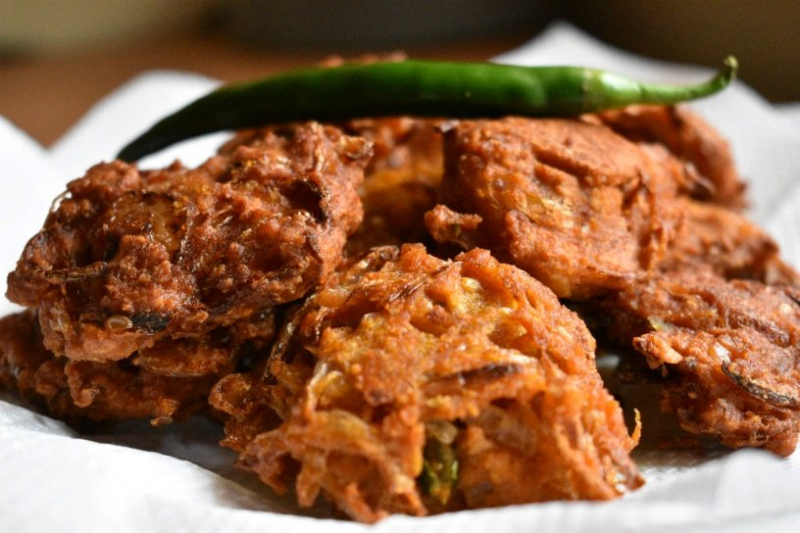Peyaji
Peyaji, a delectable and popular snack in Bengali cuisine, has a history of formation and development deeply rooted in the culinary traditions of Bangladesh and the Indian state of West Bengal. This humble yet flavorful dish has evolved to become a beloved street food and a staple in Bengali households.
The origins of peyaji can be traced back to the traditional Bengali snack known as "onion bhaji" or "pakora." Early iterations of peyaji were simple fritters made by batter-coating sliced onions and sometimes incorporating various spices. These fritters were initially enjoyed in Bengali homes as a tea-time or evening snack. Over time, the dish's popularity grew, and street vendors across Bangladesh and West Bengal began offering peyaji to a broader audience.
What sets peyaji apart is the incorporation of regional flavors and spices. The batter for peyaji typically includes besan (gram flour) combined with various aromatic spices like cumin, green chilies, and coriander. These ingredients contribute to the dish's distinct flavor, making it a unique and cherished part of Bengali cuisine.
The dish's development continued as it became an integral part of Bengali culinary culture. Peyaji is commonly served during monsoons and as an accompaniment to various Bengali dishes. Its presence in street food markets and local food stalls has solidified its status as a quintessential Bengali snack.
Peyaji stands as a testament to the enduring appeal of regional street food and the ability of simple, flavorful dishes to capture the hearts and taste buds of both locals and visitors.















